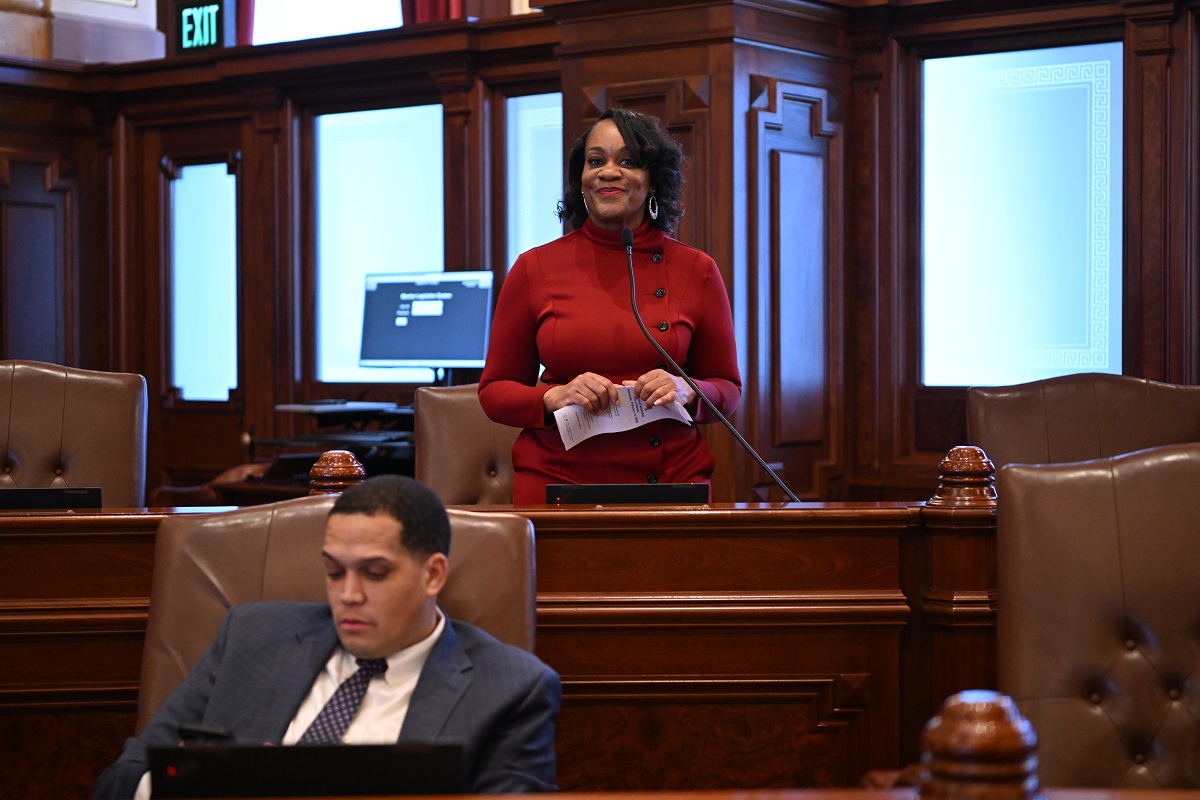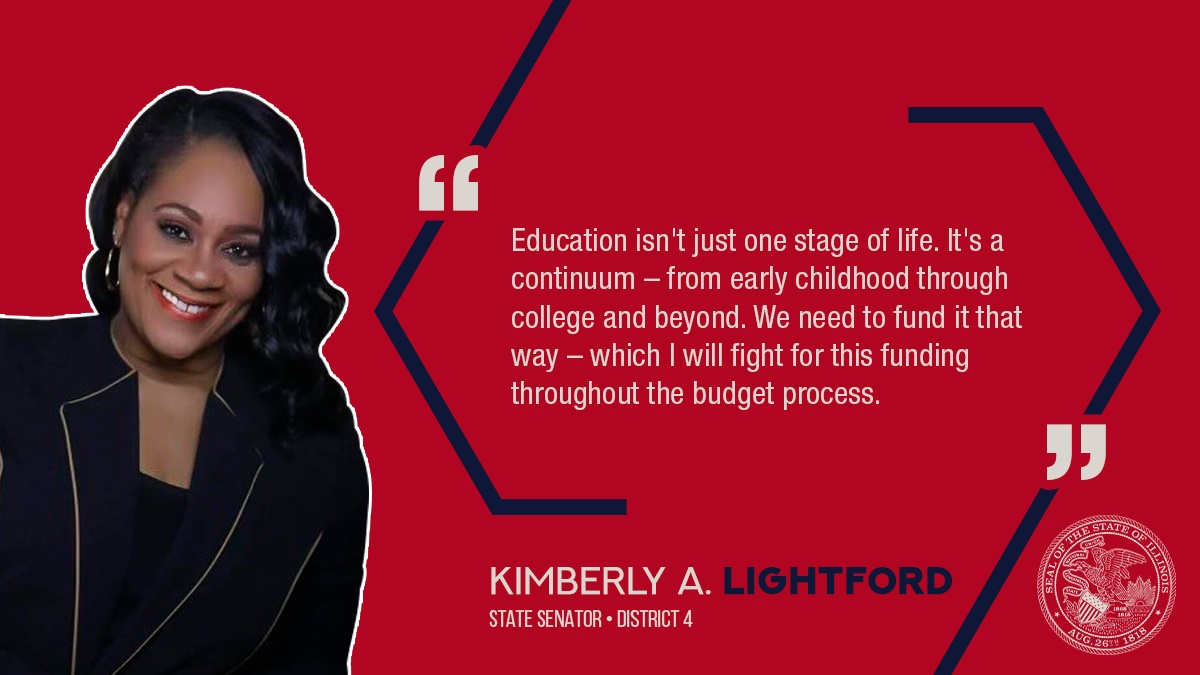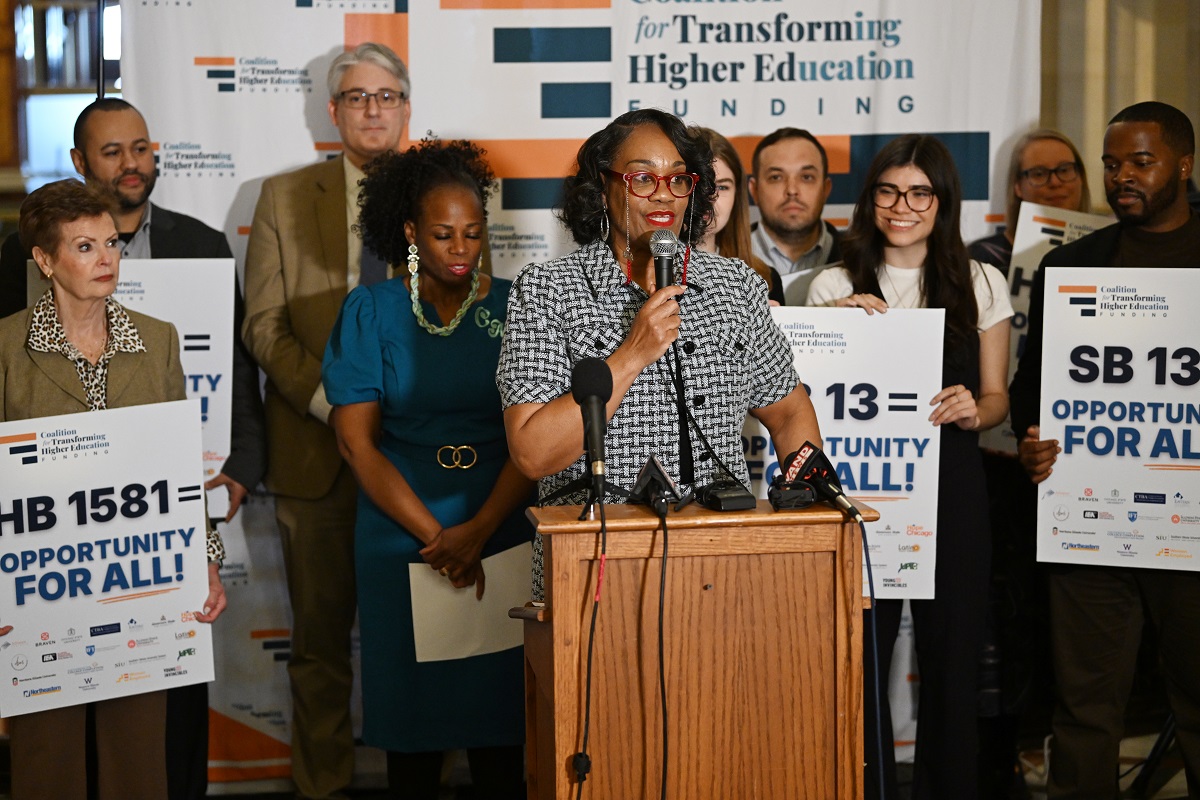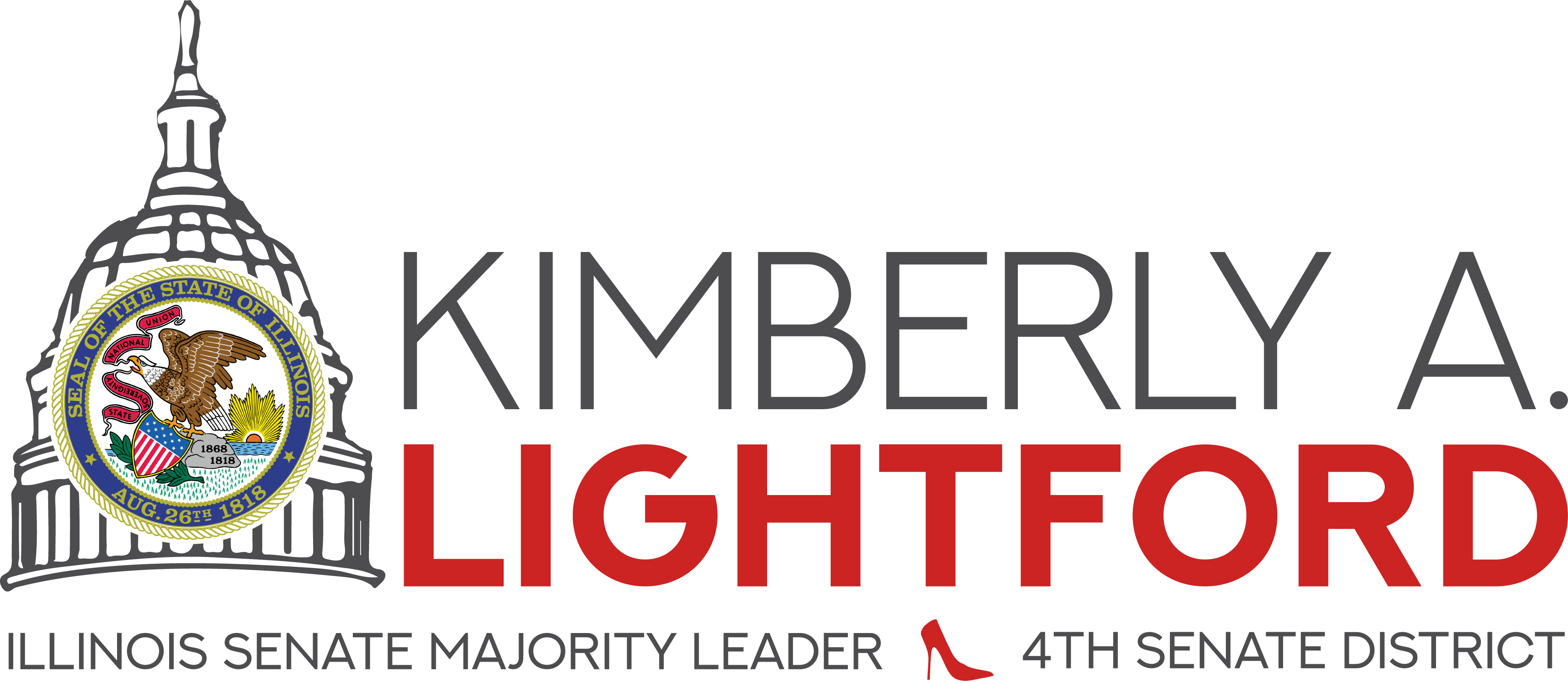- Details
- Category: News

SPRINGFIELD – Senate Majority Leader Kimberly A. Lightford is working to close a critical gap in law by extending mandatory abuse and neglect reporting requirements to cover all senior residential settings.
“Every older adult in Illinois deserves to live with dignity, safety and respect, regardless of where they call home,” said Lightford (D-Maywood). “This legislation ensures that seniors in assisted living facilities and group homes receive the same protections as those in traditional long-term care facilities. By closing this gap in our reporting requirements, we're taking an important step to prevent elder abuse and hold facilities accountable.”
Under current law, if staff of a long-term care facility believes an older adult is being subjected to abuse or neglect, they must report such abuse to the Illinois Department of Public Health. However, long-term care facilities do not include assisted living facilities or group homes.
Senate Bill 3179 would expand the requirement to such areas, ensuring older adults receive proper care and aren’t abused – regardless of their living situation.
The legislation comes at a critical time as Illinois' senior population continues to grow, with more older adults choosing assisted living facilities and group homes as alternatives to traditional nursing homes.
“No senior should suffer in silence," said Lightford. “This bill empowers staff to speak up when they witness abuse or neglect and ensures that appropriate authorities can investigate and intervene to protect our most vulnerable residents.”
Senate Bill 3179 passed the Senate Health and Human Services Committee and heads to the full Senate for further consideration.
- Details
- Category: News

SPRINGFIELD – Senate Majority Leader Kimberly A. Lightford (D-Maywood) released the following statement in response the governor outlining his proposal for the Fiscal Year 2027 budget:
“As we shape our state's budget, we must focus on policies that improve life for all Illinois residents, tackle our communities' most pressing challenges and build lasting economic strength. Funding to continue to create the Illinois Department of Early Childhood represents our commitment to a comprehensive, trauma-informed system that addresses the varied needs of our youngest citizens.
"Education funding is an investment in tomorrow. I remain committed to increasing K-12 education resources so every student can access quality-learning opportunities. This means directing adequate support to under-resourced schools and backing programs that close achievement gaps.
“While I am proud to see the governor’s proposed budget prioritize education, more must be done. That is why I am calling for funding to make our higher education system for fair and equitable. Education isn't just one stage of life. It's a continuum – from early childhood through college and beyond. We need to fund it that way – which I will fight for this funding throughout the budget process.”
- Details
- Category: News

SPRINGFIELD – Senate Majority Leader Kimberly A. Lightford and State Representative Carol Ammons are fighting to transform how Illinois funds its higher education system through legislation that would take a student-centered approach.
“Despite education’s paramount importance, the disparity in funding among higher educational institutions remains dreadfully evident,” said Lightford (D-Maywood). “This imbalance not only undermines the principle of equal opportunity but also hampers our collective progress as a society.”
Lightford and Ammons were instrumental in creating the Commission on Equitable Public University Funding in 2021. Over the years, the 30-person commission studied if public institutions of higher education are in dire need of a new funding model when serving underrepresented and historically underserved student groups, including Black and Brown students, as well as students from low-income families.
The commission found on average, university systems in Illinois spend over double the amount on academic and student supports – the spending that most directly impacts student success – than at its less-resourced regional universities. Worse, these arbitrary and inequitable allocation decisions have compounded yearly due to a lack of equitable distribution.
“An investment in higher education isn’t just an investment in students,” said Ammons (D-Urbana). “We’re investing in young people seeking their first degree, and older people seeking a higher degree or returning to get a college degree, and these people increase the quality of our workforce, community, economy and so much more.”
In response, Lightford and Ammons held a press conference Tuesday urging the passage of Senate Bill 13 or House Bill 1581 – identical bills in their respective chambers – to implement a student-centered, adequacy-based funding formula for Illinois’ public universities known as the Adequate and Equitable Public University Funding Formula. The measure is similar to Illinois’ evidence-based K-12 funding model, taking a parallel approach for higher education by outlining a formula that accounts not only for the size of institutions and the types of academic programs they offer, but also demographic factors such as socioeconomic, racial and geographic diversity.
Combined, these variables would be used to calculate adequacy targets, or the optimal amount of annual funding each institution needs to fully serve its students.
“School funding for each university is different. The financial aid required for each university deserves to be calculated as their own entity,” said Representative Norma Hernandez (D-Melrose Park). “We cannot expect to meet each institution's financial necessities when they are only receiving the average calculated funding.”
Lightford, Ammons, Hernandez, university officials and advocates will fight tirelessly throughout the legislative session to get the Adequate and Equitable Public University Funding Formula – and subsequent funding – over the finish line.
- Details
- Category: News

SPRINGFIELD – Senate Majority Leader Kimberly A. Lightford (D-Maywood) released the following statement after the death of Reverend Jesse Jackson:
“Today, Illinois and the world mourn the loss of one of the greatest champions for justice and human dignity this nation has ever produced. The Reverend Jesse Louis Jackson Sr. was a moral force, a prophetic voice and a living bridge between the movement that freed us and the work that still remains.
“I had the privilege of working alongside Reverend Jackson. I remember the way he looked you in the eye and made you feel as though the entire weight of the struggle was yours to carry — not as a burden, but as an honor. That encounter never left me. It shaped the kind of public servant I strive to be.
“To the entire Jackson family: the people of Illinois grieve with you. You shared him with the world, and the world is better for it.
“May we honor his memory not with monuments, but with motion — continuing the fight for voting rights, economic justice and the full dignity of every human being. Rest in power, Reverend. The work goes on.”
More Articles …
Page 1 of 130







